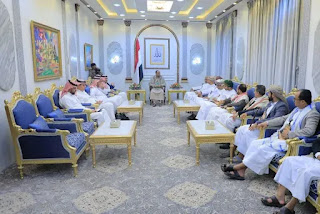Peace Talks Trying to Save Yemen
Photo source: New York Times
By Naveed Qazi | Editor, Globe Upfront
A new glimmer of hope appeared for the breakthrough of the Yemen conflict, in April 2023 which in contemporary times is regarded as one of the world’s most gruesome conflicts ever witnessed.
The talks could usher a new phase for Saudis after a complex conflict amid the harrying war, as talks have successfully made an eventual ceasefire with the Houthi rebels. The UN’s envoy to Yemen, Hans Grundberg, ascertained that it was the nearest Yemen had been to peace negotiations since the infighting started.
Although the optimism for peace could be clouded by mistrust due to the likelihood of pending major disputes. For Saudis, there are doubts about the reliability of Houthis as well. There are also continuing demands within Yemen’s south for a separate state.
A path to a ceasefire in Yemen would be directly proportional to greater peace between Riyadh and Tehran, a bone of contention which may have been reminiscent of the talks that China brokered in March 2023. It shows the Saudi-Iran agreement has given a broader roadmap for greater reconciliation in the Middle East.
According to Patrick Wintour in Guardian: ‘a draft agreement presented to the Yemeni government includes a ceasefire for six months in the first phase to build confidence, and then a period of negotiation for three months on managing the transitional phase, which will last for two years, during which a final solution will be negotiated between all parties.’
Saudi Arabia, along with the United Arab Emirates, has been funding the Yemeni government and severely strangling the flow of goods into the country, particularly at ports controlled by the Houthis. It was in 2022 when Riyadh was instrumental in reorganising the Aden-based government, creating a new body, the Presidential Leadership Council, chaired by Rashad al-Alimi. It also gave a larger role to the Southern Transitional Council, the largest separatist group seeking independence from the south of Yemen.
At present, Saudi Arabia will be looking for assurances that the Houthis will not relaunch their campaign of sending drones into the kingdom. It seems like a plan requiring a buffer zone along the 800-mile border between Yemen and Saudi Arabia.
To furnish peace, Saudi Arabia has lifted the fuel import restrictions. The first ship has unloaded on the Hodeida harbour. This will facilitate food delivery, medicines, and other assistance to the Yemeni people. The blockade of Sanaa airport would also be lifted to allow some commercial flights per week, apparently to Cairo and Amman.
It were the Omanis who made first contact with the rebels. It all reflected that Omani Sultan Haitham is following the footsteps of his illustrious predecessor Sultan Qaboos, as a skilled diplomat who was apt at reducing regional tensions.
Regarding American intervention, in 2022, Biden publicly called for an end to the war and suspended some offensive military aid to Saudis. Still, it was not enough to satisfy many anti-war senators in US Congress. But, in the past, Biden's refusal to seriously deal with Crown Prince Salman, the architect of the Yemen war, reflects that he didn’t stand firm on his position regarding the matter, especially during his presidential campaigns. The Trump administration too had an urge to uncritically support Saudi Arabia’s intervention in Yemen, which resulted in a delusional mistake. On the other hand, Obama had Iran nuclear deal as his priority, and he never wanted Saudi opposition to it. It also showed his half-heartedness to resolve the Yemen war.
In all this, Tehran is a major beneficiary of the truce. Tehran has a foothold on the Arabian Peninsula overlooking the strategic Bab el Mandab Strait between the Red Sea and the Indian Ocean. Despite getting an ideological vent and military aid from Islamic Revolutionary Guard Corps for seven years or so, when the Saudi intervention began, Houthis mostly remain fiercely independent in their operations.
The fragile situation also shows that a ceasefire may collapse anytime without warnings. It made Bruce Ridel write in Brookings: ‘There are several spoilers in the country including Al Qaeda, independent warlords, and others who want the war to continue. The challenge of converting the truce into a political process is enormous. It may be wiser to concentrate on short steps, for example, more flights from Sanaa for medical evacuations. The top priority is to extend the ceasefire indefinitely.’
Yemeni analysts, however, say that without genuine care of resolution among the Yemenis themselves, any positive development for prolonged peace cannot take root.




Comments
Post a Comment
Advice from the Editor: Please refrain from slander, defamation or any kind of libel in the comments section.